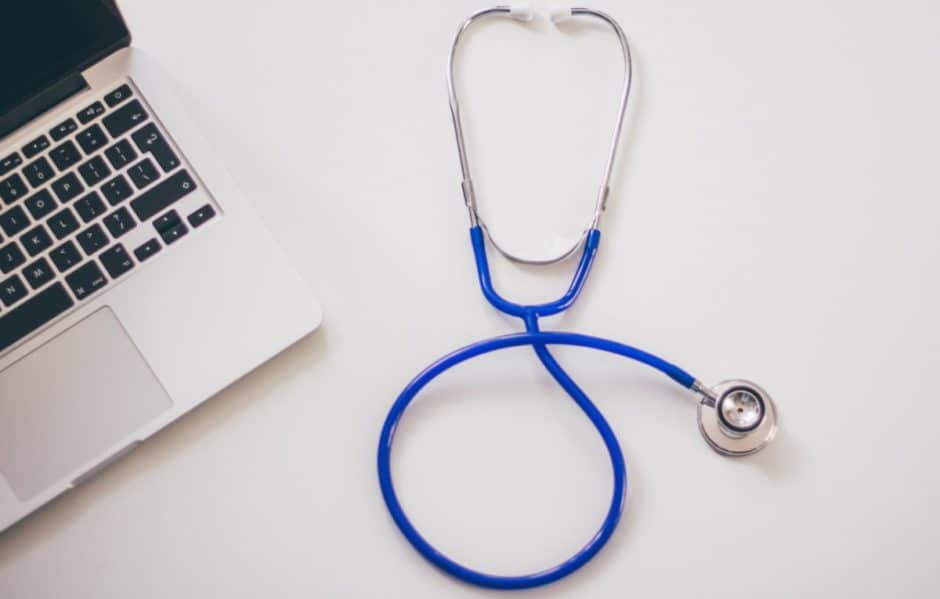Congratulations on your pregnancy! During this magical time, eating well should be a top priority—after all, you are eating for two! Utilizing the MyPlate food groups and eating a well-balanced diet is the first step to having a healthy pregnancy. Other important factors include gaining the right amount of weight, participating in regular physical activity, taking a vitamin and mineral supplement if recommended by a physician and avoiding alcohol, tobacco and other harmful substances.
Foods for a Healthy Pregnancy
Pregnant women need a balanced diet that includes:
- Whole grains like breads, cereals, pastas and brown rice.
- Fresh, frozen or canned fruits without added sugar.
- A variety of colorful vegetables—fresh, frozen or canned with no added salt. Raw sprouts should be avoided.
- Lean protein from meat, poultry, fish, eggs, beans and peas, peanut butter, soy products and nuts.
- Up to 12 ounces of safe seafood a week—it’s full of healthy protein, iron and omega-3 fatty acids. Safe fish to eat include tilapia, cod, salmon, crab, shrimp, sardines, canned light tuna, pollock and catfish.
- Low-fat or fat-free dairy including milk, cheese and yogurt.
- Healthful fats including canola, corn, peanut and olive oil.
Foods to Avoid During Pregnancy
- Tilefish, shark, swordfish and king mackerel. Limit white (albacore) tuna to 6 ounces per week.
- Unpasteurized milk and some soft cheeses (brie, feta and goat cheese) that are made from unpasteurized milk.
- Deli, luncheon meats and hot dogs should be reheated if consumed.
- Raw and undercooked meats, poultry and fish, including sushi.
Key Nutrients for Healthy Pregnancy
Prenatal vitamins may be recommended by your physician to ensure that you receive the proper amount of necessary nutrients.
Folic Acid
Folic acid reduces the risk of birth defects that affect the spinal cord. All women of childbearing age and pregnant women should consume at least 400 micrograms of folic acid each day. Sources include fortified foods such as cereals, pastas and breads; supplements; and natural food sources of folate like legumes, green leafy vegetables and citrus fruits.
Iron
Pregnant women need at least 27 milligrams of iron a day. Foods with high and moderate amounts of iron include red meat, chicken and fish, fortified cereals, spinach, some leafy greens and beans. Vegetarians and women who do not eat a lot of meat should increase iron absorption by combining plant-based sources of iron with vitamin C-rich foods.
Calcium
During pregnancy, calcium is needed for the healthy development of a baby’s teeth, bones, heart, nerves and muscles. When a pregnant woman does not consume enough calcium, it is taken from her bones for the baby. It is important to consume adequate amounts of calcium daily before, during and after pregnancy. The recommended amount of calcium during pregnancy is 1,300 milligrams per day for adolescents 14–18 years old and 1,000 milligrams per day for women ages 19–50. That means at least three daily servings of calcium-rich foods such as low-fat or fat-free milk, yogurt or cheese or calcium-fortified cereals and juices.
Gestational Diabetes
Around the 24th to 28th week of pregnancy, you may be screened for gestational diabetes. Pregnant women who have never had diabetes before but who have high blood glucose (sugar) levels during pregnancy are said to have gestational diabetes. Most women with gestational diabetes can still have a successful pregnancy and a healthy baby if they can keep their glucose levels under control. Your doctor may refer you to an endocrinologist or registered dietitian to help you plan your nutrition and to monitor your gestational diabetes.
If you have gestational diabetes, a perinatologist will work with you and your obstetrician to devise a plan to keep your blood sugar levels within a normal range. The good news is that controlling your blood sugar can help ensure a healthy pregnancy for you and a healthy start for your baby. With your blood glucose in the target range and good medical care, your chances of a trouble-free pregnancy and a healthy baby are almost as good as they are for a woman without diabetes.
How Chester County Hospital Can Help
Chester County Hospital has many programs to support women before, during and after pregnancy.
Gestational Diabetes Management
This educational program is for women who are pregnant and develop diabetes during pregnancy. During sessions, each patient receives a blood glucose meter and an individualized meal plan. Contact Diabetes & Nutrition Services at (610) 738-2835 or via email.
Nutrition and Weight Management
The best weight management and nutrition programs are specifically tailored to your nutritional, physical and lifestyle needs, but evaluating which diets would best complement those needs can be difficult. That is where Chester County Hospital can help. One-on-one counseling sessions begin with a one-hour consultation, during which time dietitians will assess your dietary needs and work with you to create a realistic nutritional plan that takes into consideration both your physical goals and your lifestyle. Contact Nutritional Services at (610) 738-2835 for more information.
Women’s Health
Chester County Hospital realizes that women are busy and sometimes stressed, which is why the hospital offers programming for women that can help them to relax and take a moment to learn about their health and well-being. Programs include screenings, physician lectures, expos and informal presentations. For more information, contact Women’s and Children’s Health at (610) 738-2300.
This message brought to you by Chester County Hospital. Part of Penn Medicine, Chester County Hospital has been dedicated to the health and well-being of the people in Chester County and surrounding areas for nearly 125 years.
- Fish photo, greens photo: Alexandra Whitney Photography
- Hot dog photo: BigStock
- Stethoscope: Negative Space
- Chester County Hospital photo: Chester County Hospital








